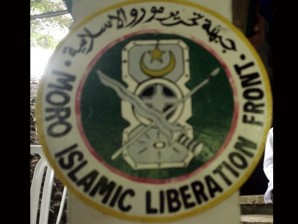
This is what peace activists have urged the government and Moro Islamic Liberation Front to consider in forming the Transition Commission that would be tasked with preliminary measures toward entrenching the Bangsamoro.
Maranao activist Salic Ibrahim, chair of the Mindanao Peoples Caucus, said the recommendations reflect the grassroots sentiments among the mix of
peoples in the region.
Ibrahim said “warlords and traditional politicians represent the unacceptable status quo” that the Mindanao peace process sought to transform, hence, it will be ironic to afford them such a platform.
Recently, the MPC has proposed a six-point guideline for choosing individuals to be nominated into the TC.
“The transition commission must be composed of men and women with proven track record in human rights, peace building and support to the GPH-MILF Peace Talks,” the group said in a statement.
Under the Framework Agreement that both parties signed last Oct. 15, the TC will be created through an executive order of President Aquino. It shall be composed of 15 Moro members–eight nominated by the MILF and seven by government. As agreed, an MILF nominee chairs the TC.
Among others, the TC will preside over the drafting of a Bangsamoro Basic Law that will be forwarded to Congress for legislation.
When ratified, the legislated Basic Law will serve as the charter of the Bangsamoro, a self-governance entity that will replace and will have far greater powers than the current Autonomous Region in Muslim Mindanao.
The MPC said individuals that will eventually compose the TC must have “no conflict of interest in the desired roadmap of the transition period.”
The 15 TC members must also come from the different geographic areas of the Bangsamoro to ensure balance representation “especially those coming from the island-provinces,” the MPC suggested.
Further, the group proposed that at least four of the 15 TC seats must be allocated to women “who directly come from conflict-affected areas and with clearly identified constituency to represent.”
The peace activists also suggested to ensure representation of the lumad and the Moro National Liberation Front.
The lumad representative, they said, “must be chosen on the basis of consensus building among the indigenous peoples leaders with special focus on those tribes that are directly affected” like the Teduray, Dulangan Manobo, Arumanen, B’laan and Higaonon tribes.